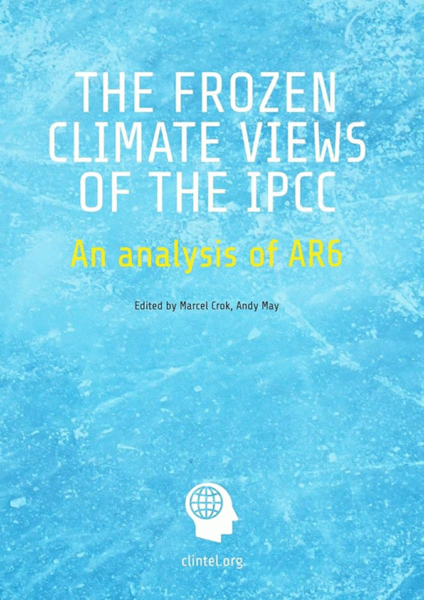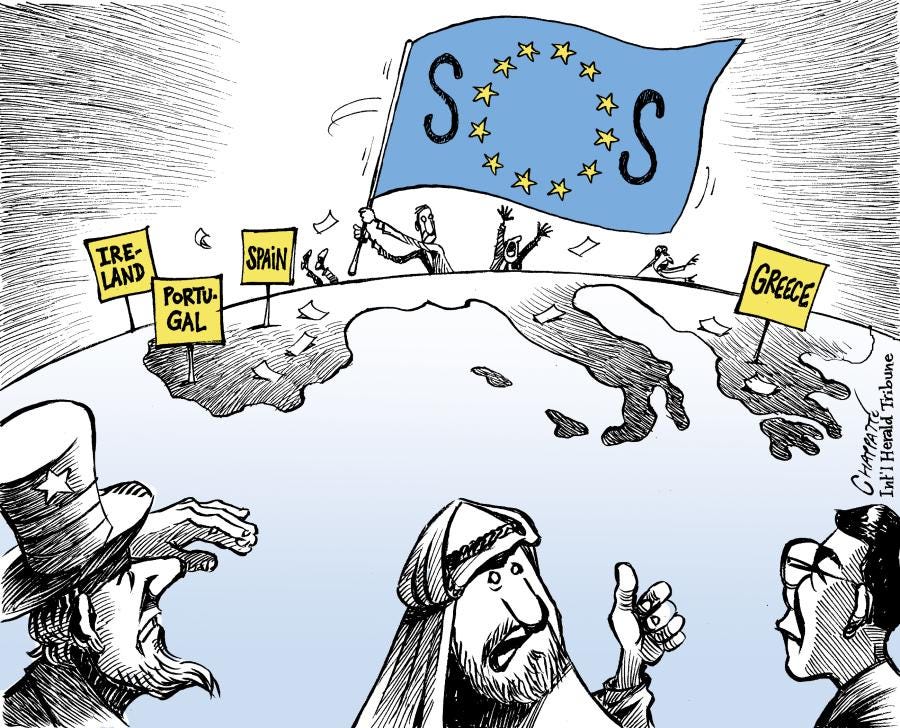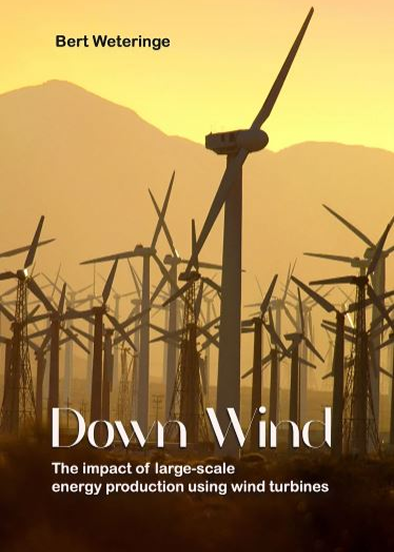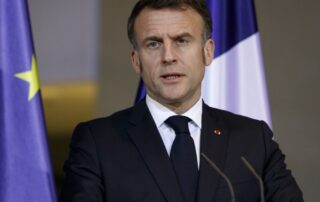The End of Europe’s Welfare State: Net Zero, Debt and Decline
In his latest analysis, Tilak Doshi argues that the mounting financial strain posed by Net Zero policies, ballooning public debt, and soaring welfare costs are pushing Europe’s social protection model toward collapse—raising urgent questions about its viability.
Clintel Foundation
Date: 4 September 2025
A flurry of headlines over the past week paints a grim picture of Europe’s leading economies and the United Kingdom. German Chancellor Friedrich Merz warned last weekend that the German welfare state is “no longer financially sustainable”. The Chancellor called for a fundamental reassessment of the benefits system as spending continues to climb past last year’s record of £40 billion.
On the same weekend, UK Chancellor of the Exchequer Rachel Reeves was urged by leading economists to drastically cut public spending in order to avoid Britain needing a 1970s-style International Monetary Fund bailout. The Chancellor was warned that her looming tax rises risk a return to high borrowing costs that forced a previous Labour government to go with a begging bowl to the IMF.
On Tuesday, French finance minister Eric Lombard warned that France may need assistance from the IMF if the economic crisis of high debt, budget deficits and borrowing costs cannot be brought under control. “I cannot assure you that the risk of IMF. intervention does not exist,” he said in an interview on French radio. Fears of a new political crisis swept through France as the minority government of Prime Minister Francois Bayrou appeared likely to be ousted in a confidence vote next week.
Debts, Borrowing Costs and Political Disarray
France, with public debt now surpassing €2.8 trillion (approximately 112% of GDP) and budget deficits careening above 6% of GDP, teeters at the edge of a financial abyss. Its Prime Minister, François Bayrou, faces near-certain defeat in a confidence vote next week for a Budget that barely scratches at runaway spending. Investors are fleeing, the CAC-40 index is sagging and French banks — stuffed with government bonds — are being heavily shorted by hedge funds betting on a sovereign meltdown.
Germany, once Europe’s industrial powerhouse, is now Europe’s sick man after two consecutive years of economic contraction. Social spending has exploded to over €47 billion annually. The country faces a €172 billion budget black hole, even as its industrial base — especially in energy-intensive sectors such as chemicals and steel — crumbles under the burden of exorbitant electricity prices driven by climate policies.
The United Kingdom fares no better. With a debt-to-GDP ratio of 96%— one of the highest in the developed world — it now stares at the humiliating prospect of an IMF bailout, half a century after the Labour government last brought Britain to its knees in 1976. This, even as welfare spending balloons to £326 billion this year, projected to rise by another £47 billion within five years.
Taken together, these developments suggest that Europe is not merely experiencing a cyclical downturn. The structural crises these leading economies face is a function of several key attributes they share: mass migration of unskilled workers burdening the welfare state; the boomeranging sanctions on Russian energy exports to Europe; the continued transfer of billions of euros to Ukraine while refusing to support President Trump’s efforts to bring about peace; and, above all, the pursuit of costly Net Zero policies that the UK and EU have adopted over the past two decades. This has led to the world’s highest energy and electricity prices.
The Cult of Net Zero
After 50 years of failed predictions of climate apocalypse, the zealous pursuit of Net Zero climate policies at any cost in the EU and UK to ‘save the planet’ is a peculiar form of economic suicide. The postwar European miracle was built on cheap and abundant fossil fuels, nuclear power and pragmatic economic management. That foundation is now being dismantled in the name of fighting climate change.
Subsidies for wind and solar have reached astronomical levels, yet these intermittent sources cannot provide the baseload power that industry and households require. Nuclear energy, once a symbol of modernity, has been hobbled by regulation or phased out entirely. Natural gas supplies to supplement dwindling North Sea production were once reliably imported from Russia. They were cut off by sanctions and geopolitical hubris although the EU remains the largest importer of Russian LNG. The sabotage of the Nord Stream gas pipeline signalled the end of cheap Russian natural gas that helped lay the foundations of Europe’s post-war economic prosperity.
The result is predictable: deindustrialisation, skyrocketing electricity bills and declining living standards. Germany’s vaunted Mittelstand firms — medium-sized manufacturers that long formed the backbone of its export model — are relocating abroad. Energy-intensive industries in France and Great Britain are shuttering. Households, already squeezed by inflation and stagnating wages, are asked to shoulder the costs of heat pump mandates, bans on gasoline and diesel cars and ever-higher energy taxes.
This is not an energy transition. It is an energy regression — an attempt to reconfigure advanced industrial societies around technologies that cannot deliver the reliability and affordability required for economic growth. The climate policies imposed by Brussels, Berlin, Paris and London amount to a vast system of central planning and prescriptive industrial policy. History – and Friedrich von Hayek in his book The Road to Serfdom – have shown that central planning, ‘green’ or otherwise, leads not to progress but to shortages, inefficiencies and decline.
The Welfare State Collides with Green Ideology
Europe’s predicament is compounded by the simultaneous expansion of the welfare state. In Germany, state pensions already account for 10-15% of GDP, compared to just over 5% in the UK. Britain, meanwhile, is staggering under a disability benefits bill that is set to grow by 56% over the next six years. France spends nearly 60% of its national output on public programmes.
In normal times, such expenditures might be sustainable if underpinned by strong growth. But these are not normal times. By deliberately undermining their own industrial base in pursuit of Net Zero, European governments are destroying the very wealth that could finance their lavish welfare promises. It is fiscal and energy masochism.
And yet, faced with this reality, Europe’s political class doubles down. Calls for reform are met not with pragmatism but with ideological fervour. France toys with scrapping a couple of public holidays as its debt spirals out of control. Germany debates modest tweaks to benefits, having shut down its last nuclear plants. In its folly of ‘climate leadership’, Britain preaches to the world about climate virtue while its manufacturing sector collapses.
What makes this tragedy particularly stark is the growing chasm between ruling elites and their citizens. Polls show that ordinary Europeans are increasingly sceptical of mass immigration, endless financial and military aid to Ukraine and costly climate mandates. Yet the political establishment presses ahead, locked into what can only be described as a self-imposed straitjacket of ideology.
France, Germany and the UK commit billions in aid to Ukraine, despite the inexorable annihilation of that country’s military forces. Migration flows, largely of low-skilled young men unlikely to contribute to economic growth, still continue unchecked. Above all, Net Zero climate targets remain sacrosanct. Politicians speak not of whether Net Zero should be pursued, but only of how fast and how punitively it must be imposed.
In this sense, Europe’s predicament is not merely economic but civilisational. What a sorry end to a once-great corner of the Eurasian landmass, occupying less than 4% of the world’s land area, home to the great scientific and industrial revolutions of the 16th and 17th centuries, and which dominated the globe for half a millennium. Its leaders have chosen to prioritise abstract ideals over concrete prosperity. They pursue ideological purity while sacrificing the interests of their own citizens.
The World Moves On
Meanwhile, the rest of the world is charting a different course. The BRICS+ bloc — led by China, India and Russia — is unapologetically investing in fossil fuels, industrial growth and economic development. These countries are not sacrificing prosperity at the altar of climate ideology. They are expanding energy access, building new infrastructure and raising living standards. While paying lip service to policy ‘commitments’ in line with the UN’s Paris Agreement in return for climate finance support, the BRICS+ and other developing countries are largely focused on ensuring robust economic growth and fulfilling their citizens’ aspirations for better standards of living.
Even in the United States, the election of Donald Trump for a second term reveals the pragmatic pull of energy security and industrial competitiveness. ExxonMobil, which exited Russia under Western sanctions, has recently held secret talks with Rosneft about re-entering joint oil and gas ventures in the Russian Far East. Cheap and accessible fossil fuel-based energy in the real world remains the cornerstone of geopolitics and prosperity. And yet, Europe, once at the forefront of global industry, is now becoming irrelevant — a geopolitical black hole on the margins of the world economy.
Europe’s relegation to vassalage was in full display in the picture of European leaders assembled like errant schoolchildren in Washington DC after the Trump-Putin summit in Alaska. French geopolitical analyst Arnaud Bertrand remarked that Europe’s exclusion from negotiations about the continent’s own future “represents one of the most humiliating moments in European diplomatic history”. In a remarkable twist of political karma, Bertrand called it Europe’s “colonial moment”.
The Road to Ruin — or Reform
Europe’s current trajectory is unsustainable. The bond markets and the cost of government borrowing will eventually impose discipline where political will has failed. Already, French government debt yields have surpassed those of Greece and Portugal. Germany’s debt brake, once a symbol of prudence, is now openly flouted. The UK faces a return to IMF tutelage.
Reform is possible, but it requires courage and conviction: abandoning quixotic Net Zero deadlines, embracing reliable energy sources including nuclear and fossil fuels, curbing runaway welfare entitlements and re-prioritising national interests over ideological crusades. In short, Europe must return to the realism that once underpinned its prosperity.
If recent history is any guide, however, reform is unlikely. Europe’s political class is wedded to climate eschatology. Its institutions are designed to perpetuate the neoliberal consensus rather than foster change. The electorates in the EU and Great Britain are restive, increasingly turning to populist-nationalist parties – the Alternative for Germany (AfD), the National Rally in France and UK Reform – that reflect policy priorities more reflective of ordinary citizens’ concerns. Punitive ‘green’ policies, permissive mass migration and continued support for war in Ukraine despite the majority of Ukrainians favouring a peace deal seem to be non-negotiable issues among the ruling elites in Europe and the UK.
In issues related to energy and the environment, the tragedy is not only that Europe is sinking, but that its leaders are determined to drown their own people while singing hymns to Net Zero as the waters close over them.
This article was first published in The Daily Sceptic.
Tilak Doshi
Tilak Doshi is a PhD economist with a focus on energy and environment policy issues. He is the energy editor at the Daily Sceptic and lives in London. Tilak’s Substack is a reader-supported publication. To receive new posts and support his work, consider becoming a free or paid subscriber.
more news
Guardian Claims We’re Still Only Approaching the Climate Point of No Return
The Guardian claims the world is edging toward a climate “point of no return,” where unstoppable warming will lock Earth into a catastrophic “hothouse” future. Yet the geological record tells a very different story. Past periods of far higher temperatures and CO₂ levels did not end life or civilization’s prospects — they supported abundance and evolutionary expansion.
The EV experiment has become a bloodbath — $140 billion wasted — more to come
The electric vehicle push was supposed to reshape the auto industry and accelerate the energy transition. Instead, mounting losses and collapsing share prices are raising serious questions about whether governments and manufacturers misread the market. What began as a bold industrial gamble is now looking, to some critics, like one of the most expensive policy experiments in recent automotive history.
Sacré bleu! Macron blames renewables for Spain’s blackouts, France drops renewables targets, expands nuclear
Europe’s energy debate is shifting. After Spain’s major blackout, even long-time advocates of aggressive renewable targets are questioning whether power systems can rely so heavily on wind and solar without sacrificing stability.







